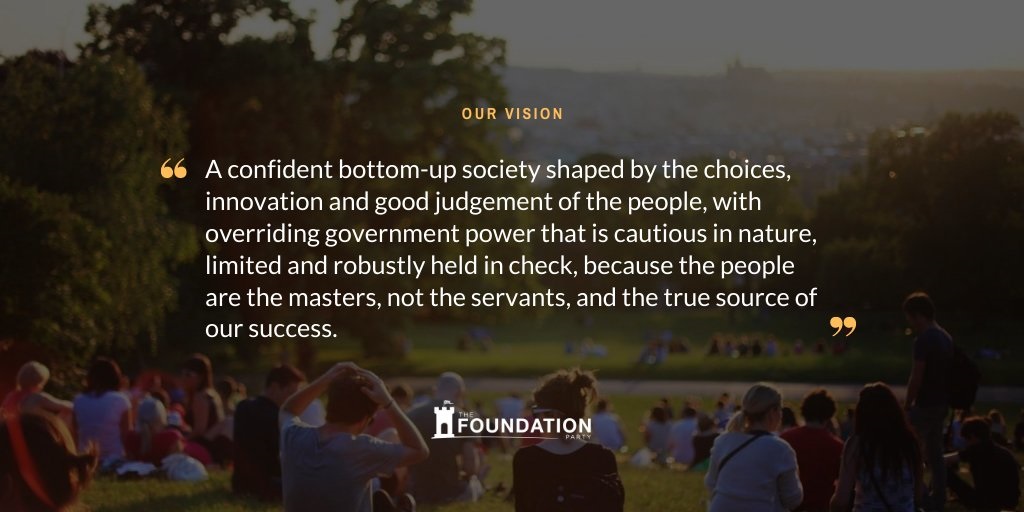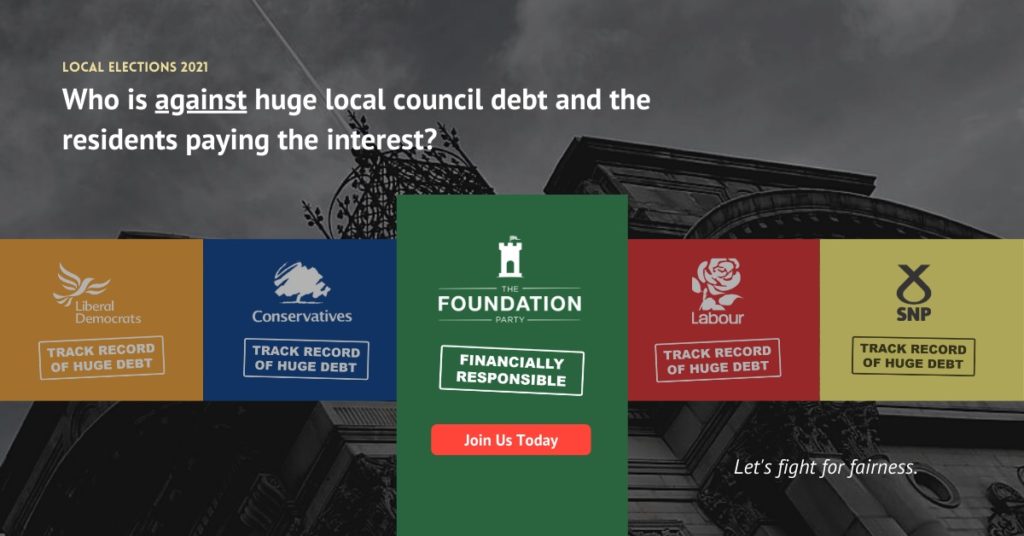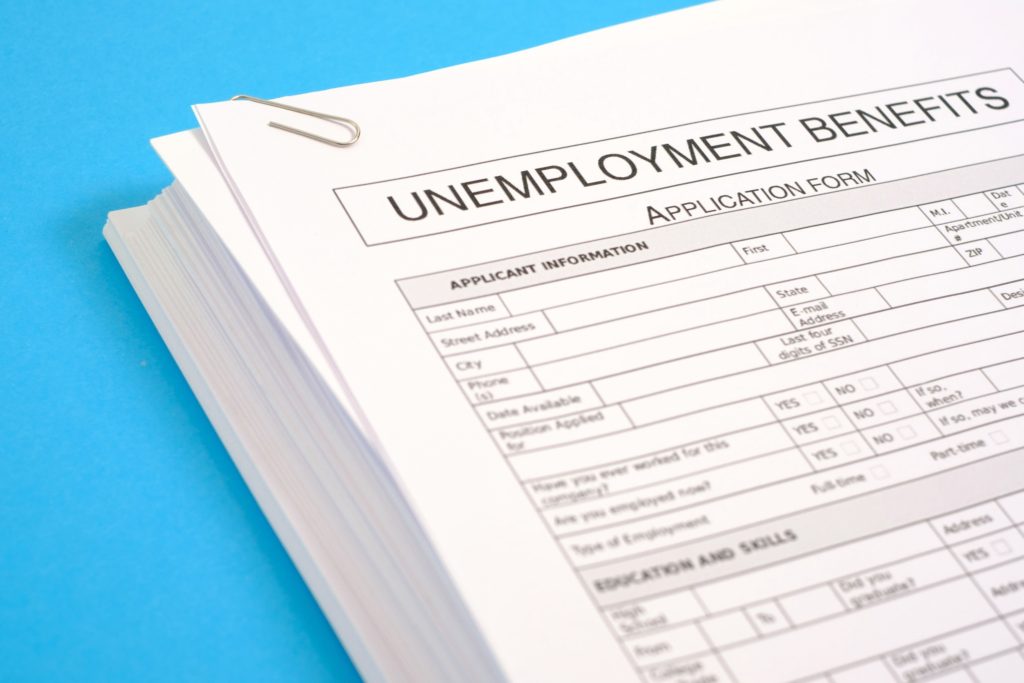The Foundation Party is a party of clear patriotic principles and feels the major political parties are no longer fit for purpose. We have spoken with the Party Leader Chris Mendes and founding member Councillor Mary Lawes.
Now we speak with new Party Chairman James Hunt. James thanks for your time.

You have been a member of the Conservative Party, UKIP, run a think tank, The Libertarian Conservative Group and now are a Party Chairman by age 23. How have you found the time, and what are the highlights of what you have worked on?
In my years in politics I have been an active member of UKIP, the Conservative Party and the Libertarian Party. During this period I founded a think tank called the “The Libertarian Conservative Group” with the aim of uniting both Libertarianism and Conservatism as I noticed that both ideological actions always fought each other when in fact they are more alike than they like to admit.
I have always found the time to be so active because I am someone who works non-stop when it comes to politics. It is a subject that is always on my mind morning, noon and night. I want a country very different from what we have now, a country that respects the smallest minority, the individual. This is the driving force that gives me the energy to be as busy as I have and I do not intend to stop anytime soon.

Your appointment said the party’s internal focus will be in “ethical party governance, full exploration of modern digital technology, and properly supporting the hard-working volunteers”. Can you tell us a little about how you plan to take forward work on each of these?
Almost every political party I have been involved in has had two fatal flaws. It has ignored its members and it has never offered them the support they need to go out and campaign on their party’s behalf. The parties I refer to are UKIP and the Conservative Party.
Instead of properly valuing the dedicated active member who has worked so hard for their party, they have valued and prioritised the big donor instead. However it is not the big donors who meet the general public, deliver the leaflets and keep the party’s candle lit, it is the ordinary hard-working members and supporters and this is where I intend the Foundation Party to be different.
With respect to “ethical party governance”, I want the party’s members to be involved, to be provided with a voice to speak up against things they both agree and disagree with. I want our party members to feel like the door is always open for them. I want to hear everything you have to say, every idea you have, and why? Because this is the only effective way to succeed as a political party -united as a team we can accomplish everything, divided and we will achieve nothing.
Fully exploring modern digital technology is something that the Foundation Party is successfully doing. We are using some of the latest cloud technologies to automate many backroom processes so that we can invest more of our time on policy and campaigning . This also helps us to reduce operating costs and increases our overall efficiency as an organisation. The more time we can spend planning on how we will improve the state of the country, the better!
“My intention for the party in next year’s elections are to a) increase the number of council seats we currently have, and b) increase the public’s awareness that there is a fresh, exciting political party out there providing the radical opposition”
You’re building up to the 2021 local elections. What are your hopes for the party in these?
You are right that we are currently working very hard to get our party ready for the 2021 local elections. My intention for the party in next year’s elections are to a) increase the number of council seats we currently have, and b) increase the public’s awareness that there is a fresh, exciting political party out there providing the radical opposition, nationally and locally, that the country so badly needs.
“I would advise all of your followers to read the Town Hall Rich List, from our friends from the Taxpayers’ Alliance, which shows you how each of these councils are very happy to waste your money without a care in the world, and in next year’s elections this is something that we will fight against”
We often highlight Croydon Councils wasteful spending, excessive debt and ever-increasing council tax, areas you are focusing on. What do you think of the performance of many local councils today?
The performance of all local government is nothing short of abysmal. They spend money that they do not have, they raise everybody’s council tax systematically, each year without fail, whilst making sure that their chief executives are paid handsomely, often more than the Prime Minister. I would advise all of your followers to read the Town Hall Rich List, from our friends from the Taxpayers’ Alliance, which shows you how each of these councils are very happy to waste your money without a care in the world, and in next year’s elections this is something that we will fight against.

More broadly what policies do you see the party focusing on in the coming elections?
Broadly speaking the Foundation Party is radically different to the other parties. We believe in a confident bottom-up society shaped by the choices, innovation and good judgement of the people, with overriding government power that is cautious in nature, limited and robustly held in check, because the people are the masters, not the servants, and the true source of our success.
So our policy priority generally is about enhancing your ability to choose. We believe in lowering the tax burden on millions of ordinary families and millions of hard-working businesses so the people can choose how more of their own money is spent. We believe in free schools and the right for parents to choose the education for their children. And we believe in a democratic self-governing nation so the people can choose the government that governs them.
Locally we want to see decisions on major local issues made locally, rather than in Westminster, by devolving powers downwards to local authorities. We want to lower council tax. And we want to import long overdue financial discipline into Conservative and Labour controlled councils up and down the country who have a long track record of wasting the peoples’ money and delivering very little in return.
The Foundation Party is truly a party on the side of the people.
“I have never known at least in my lifetime a government to perform this many U-turns just because of an outrage to something that is being expressed on Twitter. What Boris has shown is that being popular is more important to him than being a good leader”
We have recently seen a year of Boris Johnson as Prime Minister. What are your thoughts on that year?
I was hopeful that we at least had a Prime Minister that was a bit less out of touch with the people, but the last year has shown me how wrong I was. Whilst he may be delivering “Brexit” (as far as we know), he is failing in every other regard.
I have never known at least in my lifetime a government to perform this many U-turns just because of an outrage to something that is being expressed on Twitter. What Boris has shown is that being popular is more important to him than being a good leader, and in the words of the late and great Margaret Thatcher, “If you just set out to be liked, you will be prepared to compromise on anything at any time, and would achieve nothing.”
I think Boris Johnson has gone down severely in the estimation of many, many people who were expecting much more, but then why should we expect any different from a Conservative Party politician of today’s calibre?
With likely increased unemployment, massive government debt and new ways of working impacting many industries, economics is likely to once again be at the centre of our politics. Given the opportunity, what are some of the main things you would do to kick start our economy?
There are two things I would do to kickstart the economy. Firstly I would cut all taxes to give both individuals and businesses more money to spend. They know how best to spend their money to get themselves back on track.
Secondly I would look at severely cutting government spending as it is not morally right to carry on borrowing record level amounts of money while the country is economically suffering. We need financial discipline and responsibility at times like this, and that includes the government. This would encourage businesses to invest, employ more people and grow their business, while allowing individuals to spend more money in the economy and increase economic growth – you cannot tax your way to economic recovery.

“What we need is a return to genuine liberty. The problem is, we simply do not have the political class that understands what liberty truly means, and even if they did, they wouldn’t for a moment have the courage to defend it”
With BLM protests, pro and anti-statue protests and the rise of cancel culture, we appear to be copying the culture war from the US. How do you think we bring the country closer together?
We can’t go wrong by reasserting the neglected values that pave the foundation of our country, such as freedom, liberty and democracy.
Statues should not be pulled down by mobs, they should be debated by the people and by their representatives and decisions made as a result of a democratic process. Speakers should not be cancelled, they should be free to speak and subsequently supported or opposed as a result of a free choice by those listening.
The recurring theme of this culture war is the “regressive left” and its abandoning of reasoned and civilised argument, in favour of uncivilised shouting and screaming.
But more crucially, we are faced with a movement that judges people on group identity rather than individuality. As groups like BLM charge a mass number of people with the collective crime of “white privilege”, for example, the teachings of Martin Luther King Jr. of ‘judging not by the colour of our skin, but by the content of our character’ is thrown out of the window and everybody suffers.
What we need is a return to genuine liberty. The problem is, we simply do not have the political class that understands what liberty truly means, and even if they did, they wouldn’t for a moment have the courage to defend it.
You’re after people getting involved. What’s your elevator pitch to people who might like to join or help your party?
We are always looking for people who share the values of the Foundation Party. At the core of the Foundation Party are our cultural values. The value which I think sets us apart from other political parties in the United Kingdom is our integrity. We uphold the highest standards in all of our actions and seek to maintain the trust of our members, supporters and voters. To achieve this we hold ourselves to the highest standards ensuring that we are transparent in everything we do as well as accountable allowing for proper scrutiny at all times.
As we have already discussed the Foundation Party is not the first party I have ever been involved with. However one thing my experience has shown me is where other political parties get it wrong. Instead of recognising their members for their individual merit, they have instead given preferential treatment to those with the most money, or those with the most blind loyalty and who will fit into their little inner circle. This is something I will never allow to happen to the Foundation Party. In the end, democracy and accountability within such a party is undermined and the work towards continuous improvement and development of the party comes to a halt.
In my position as chairman, I will ensure that members are treated equally and afforded the utmost respect and courtesy at all times. We are nothing if not a grassroots party which rather than seeking a reliance on a well-resourced few, but instead the loyal support of a dedicated many.
My promise to our members is that the party will always support you should you wish to get involved in any way it can – because the central office is not the party, the members are.
Are these any thoughts you would like to leave us with?
We are at the beginning of a very exciting journey. There are millions of people in our country who are fed up with the status quo, and fed up with the complete lack of real opposition. Our politicians are interested not in defending the rights of the people, but the rights of the government.
The real opposition that our country needs – championing the peoples’ right to national self-government, robust law and order, freedom of speech, lowering our taxes, more responsible public spending rather than bankrupting the country every five years – is not going to just emerge on its own, we have to create it. We cannot endlessly complain while doing nothing about it.
We in the Foundation Party have taken the initiative so that one day we can elect Members of Parliament and elect a government that is truly on the side of the people. Join us and let’s fight together.
James can be contacted at [email protected]. The Foundation Party are online, on Facebook and on Twitter.

















